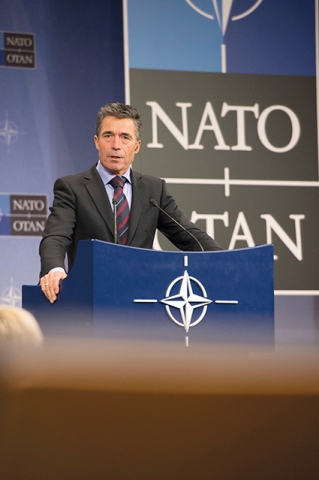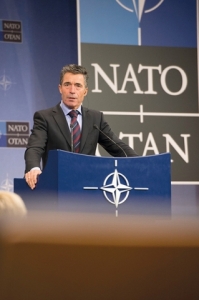The Rasmussen Proposition for Georgia
Op-Ed
The proposition of the former NATO Chief Anders Fogh Rasmussen during a geopolitical conference in Tbilisi on accepting the country into NATO without the Alliance’s obligation (most notably Article 5) to cover the separatist regions of Abkhazia and Tskhinvali region caused widespread discussion within Georgia’s political and analytical community.
In a way, Rasmussen's ideas can be regarded as a reflection of internal debates within NATO. Similar ideas were advanced last year and, considering various statements from western political and military leaders on Georgia’s NATO chances, there might be some willingness to move the idea forward for a wider, much deeper discussion.
While many in Georgia praised the proposition, others stated it would end Georgia's hopes for territorial reunification.
What the majority actually missed is that geopolitically the situation in the South Caucasus has not changed since 2008. In fact, what we see nowadays is Russia's build-up of military capabilities in Abkhazia and the Tskhinvali region. A look at the map of the South Caucasus shows that it would be difficult for the West to get Georgia into NATO in the current context. Tbilisi is almost surrounded by Russian troops. Military bases in Tskhinvali region and in Gyumri, Armenia, would serve as a strong disincentive for the West. Making a move in a militarily highly-congested region would require a much stronger and stable leadership in the West, similar to what we saw in the post-World War II period when US troops were facing the Soviet in various parts of the world, risking global warfare.
Another disincentive is that there is also a strong Russian resolve in keeping the Abkhazia and Tskhinvali regions under control because troops as close as possible to Tbilisi will always put any Georgian government under pressure by ramping up or cooling military activities.
Making Georgia a NATO member will require a strong commitment from the West to confront/respond to Russian moves. Georgia is interesting for Moscow due to its geographical position in the South Caucasus. And it is not only about barring Tbilisi from joining NATO or the EU. Russia’s goal historically has been to minimize the importance of the Caucasus mountain range as a barrier between the South Caucasus and the Russian mainland.
An insecure, destabilized South Caucasus would be a serious problem for Moscow as it could spill over into the North Caucasus (Chechnya, Dagestan, etc.). But it would be more problematic for Moscow if the South Caucasus was stable, pro-western and under NATO influence. It is exactly for these reasons that the Russians have been threatening the road, pipeline and railway infrastructure running from east Georgia to the Black Sea shore and vital to the entire region. In Moscow’s thinking, an unstable South Caucasus full of Russian troops (as is the case in our time) is what would limit, if not entirely preclude, Georgia from joining western alliances.
Considering that, the Rasmussen proposition, and I would like to point out that it was only a suggestion to discuss the idea, not to actually move forward with it straight away, also takes place at a time of grand geopolitical shifts taking place in Western-Russian relations. Various signs show that there might be an improvement in said relations. As the West is worried about Russia's increasing friendliness with China, moves not to lose Russia "forever" will be made. This does not mean that Ukraine and Georgia might become a part of grand bargain where Russia will be given a carte blanche, but the need to have Russia closer nowadays would outweigh a difficult decision to make Georgia a NATO member.
Thus, there are considerable obstacles to Georgia’s NATO accession. As said, the Rasmussen proposition does show that discussions on Georgia’s membership within the alliance are indeed taking place. However, it would be premature to say more than that, as there are still too many geopolitical obstacles in Georgia’s way.
By Emil Avdaliani
Image source: nato.int












